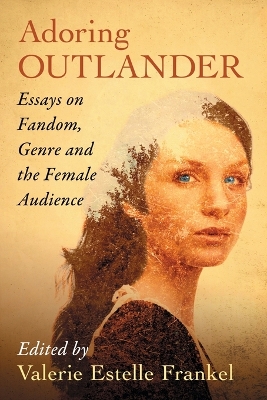Reviewed by Terri M. LeBlanc on
I’m always a bit trepidatious about tackling a nonfiction book and a book of essays is especially nerve-racking because I feel the need to read EVERY essay in the book. The good news is that there were only two essays that didn’t catch my attention and I gave myself permission to skim them quickly and move on.
The essay entitled “Confrontational Content, Gendered Gazes and the Ethics of Adaptation in Outlander and Game of Thrones” was my favorite essay in the book. It tackled the thorny issue of the rape and sexual assault in both series, how they are portrayed on the small screen and how those events affect (or don’t affect) the characters. This was something I attempted to tackle after seeing the episode “Unbowed, Unbent, Unbroken” of Game Thrones and “Wentworth Prison” of Outlander within weeks of each other.
As I read this essay I cheered because Jennifer Phillips expressed in an intelligent way why the way these events are treated in both shows is important to the viewer. What really sticks with me is that many of the sexual assault and rape scenes in GoT were added to the show and were not part of the original text, and their addition didn’t drive the story forward and the event has no ongoing psychological affect on the character. And in Outlander, it is completely the opposite. The characters that experience a sexual assault or rape are deeply and profoundly affect by that event in their lives and those echoes are seen throughout the series.
I also loved Phillips covering the idea of the female gaze and how important it is that Claire teaches Jaime about making love instead of the other way around. This is a view that rarely happens in television, movies and books. (However, maybe that will change with the popularity of Outlander and Wonder Woman as the world seems to be more open to strong, intelligent woman TEACHING men about things.)
Adoring Outlander: Essay on Fandom, Genre and the Female is definitely a must read for fans of Outlander. Many of the essay helped me understand how Outlander fits into the “real world” and how a historical fiction novel, which I have loved since about 2001, is relevant to events happening in the world today.
This review was originally posted on Second Run Reviews
Reading updates
- Started reading
- 29 July, 2017: Finished reading
- 29 July, 2017: Reviewed
